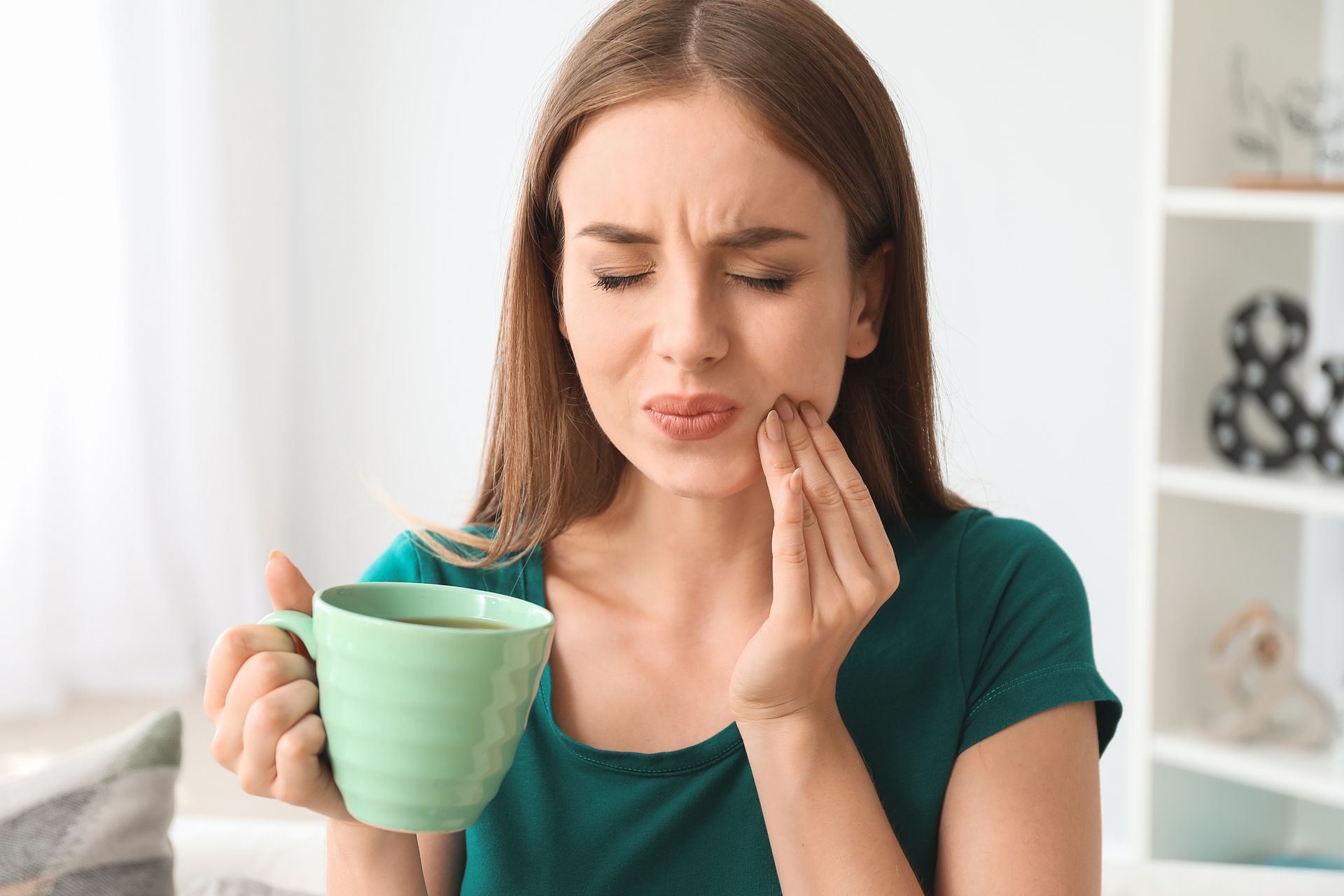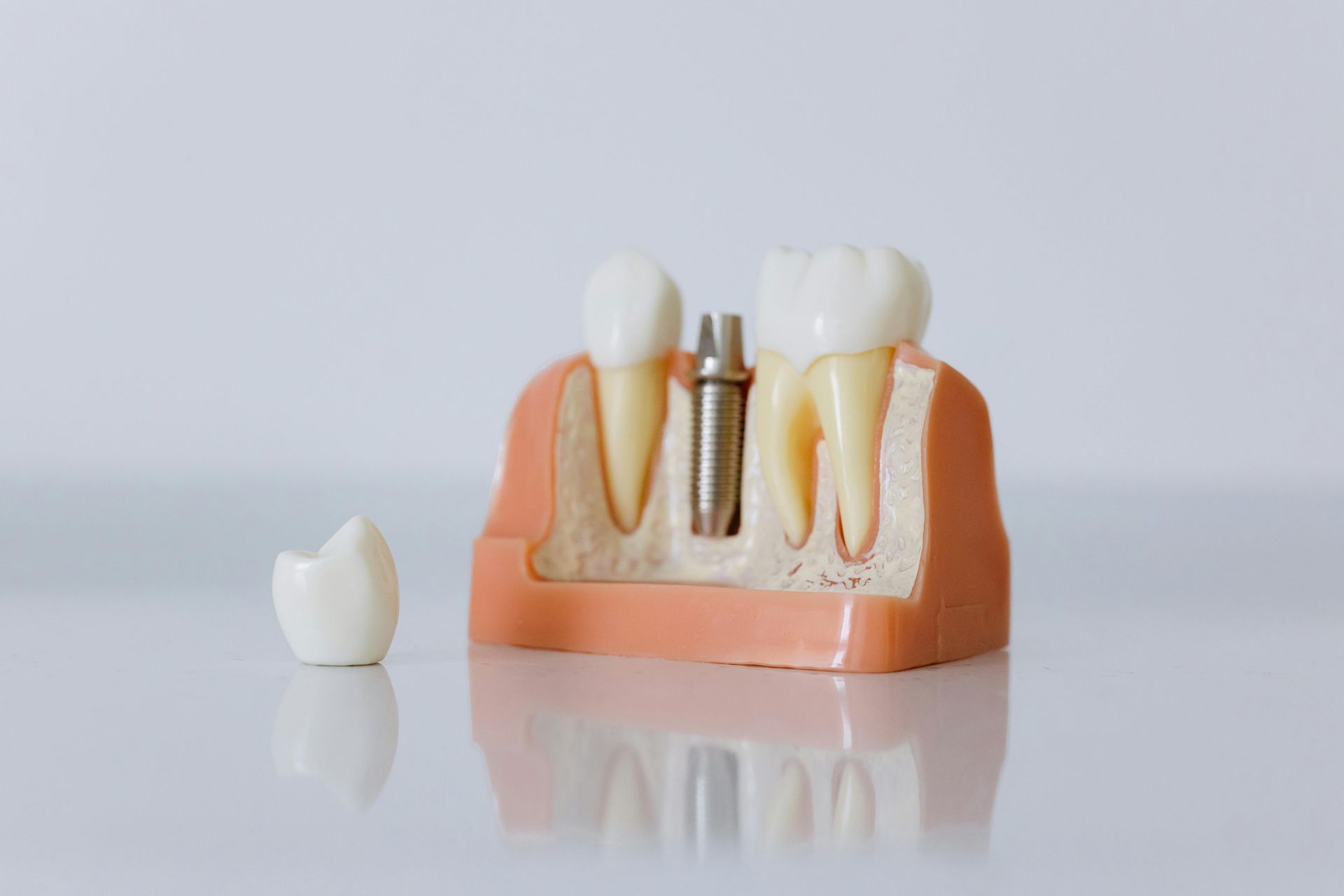HELP ME WITH
SENSITIVE TEETH
Sensitive teeth cause sharp pain during everyday activities like eating, leading to frustration. We explain causes and symptoms to help you understand this disruptive dental issue.

Our dental practice provides compassionate, expert care for sensitive teeth. Discover treatment options and find a dentist near you to restore comfort and ease your pain quickly.

What Causes
Sensitive Teeth?
Tooth sensitivity, or dentine hypersensitivity, happens when the inner layer of your tooth (dentine) becomes exposed, allowing hot, cold, or sweet stimuli to reach the nerves. Common causes include:
- Worn Enamel: Brushing too hard or consuming acidic foods like citrus or fizzy drinks can erode the tooth’s protective layer.
- Receding Gums: Gums pulling back expose the tooth’s sensitive root surface.
- Tooth Decay: Cavities near the gumline can trigger discomfort.
- Cracked Teeth: Fractures can expose the dentine, causing pain.
- Recent Dental Work: Fillings, crowns, or whitening may temporarily increase sensitivity.
- Gum Disease: Inflamed or receding gums from gingivitis or periodontitis can worsen sensitivity.
For instance, a busy professional might wince while drinking morning coffee, or a parent might feel a sting when eating sweets with their kids. A local dentist can pinpoint the cause and recommend the right solution.
Symptoms of Sensitive Teeth
Sensitivity varies, but common signs include:
- Sharp, sudden pain when consuming hot, cold, or sweet foods and drinks.
- Discomfort when brushing or flossing, especially near the gums.
- Pain triggered by cold air, like during a chilly walk.
- Temporary or persistent discomfort in one or more teeth.
These symptoms can disrupt simple pleasures, like enjoying a Sunday roast. Visiting a dentist near you ensures a thorough diagnosis and tailored treatment.
Sensitive Teeth Treatment Near You
A local dentist will examine your teeth and may use X-rays to identify underlying issues. Treatment options include:
- Desensitising Toothpaste: Special toothpastes block nerve signals, reducing sensitivity over time.
- Fluoride Gel: Applied by your dentist, it strengthens enamel and protects exposed dentine.
- Dental Bonding: A resin covers exposed roots or damaged areas to reduce discomfort.
- Gum Treatment: Scaling or surgery can address gum disease, reducing recession.
- Mouthguards: For those who grind their teeth (bruxism), a custom guard protects enamel.
- Fillings or Crowns: These repair cavities or cracks causing sensitivity.
Our team uses gentle techniques to ensure your comfort. For example, a nervous patient might worry about treatment, but we make the process calm and straightforward, easing their fears.
At-Home Tips for Managing Sensitive Teeth
While waiting to see a dentist near you, try these practical steps to ease discomfort:
- Use a Soft Toothbrush: Brush gently with a soft-bristled brush to avoid further enamel wear.
- Choose Desensitising Toothpaste: Use it twice daily to reduce sensitivity gradually.
- Avoid Acidic Foods: Limit citrus, tomatoes, or fizzy drinks that erode enamel.
- Rinse with Fluoride Mouthwash: It strengthens teeth and soothes sensitivity.
- Avoid Extreme Temperatures: Sip lukewarm drinks to prevent triggering pain.
These tips offer temporary relief, but professional care from a local dentist addresses the root cause for lasting results.
When to See a Dentist Near You
Seek help from a dentist near you if:
- Sensitivity persists for more than a few days.
- Pain is severe or affects multiple teeth.
- You notice gum swelling, bleeding, or signs of decay.
- Discomfort disrupts eating, drinking, or daily activities.
Early action prevents complications, like cavities worsening. We’ve helped patients rediscover the joy of eating without pain, and we’re here for you too.
Preventing Tooth Sensitivity
Protect your teeth with these habits:
- Brush gently twice daily with fluoride toothpaste and floss regularly.
- Limit acidic foods and drinks, rinsing with water after consumption.
- Visit your local dentist every six months for check-ups and cleanings.
- Wear a mouthguard if you grind your teeth at night.
Simple changes, like switching to a straw for fizzy drinks, can safeguard your enamel.
Your Trusted Dentist
Book Your Dental Appointment Today
Call us now or
Book online to schedule your consultation with a trusted local dentist.



